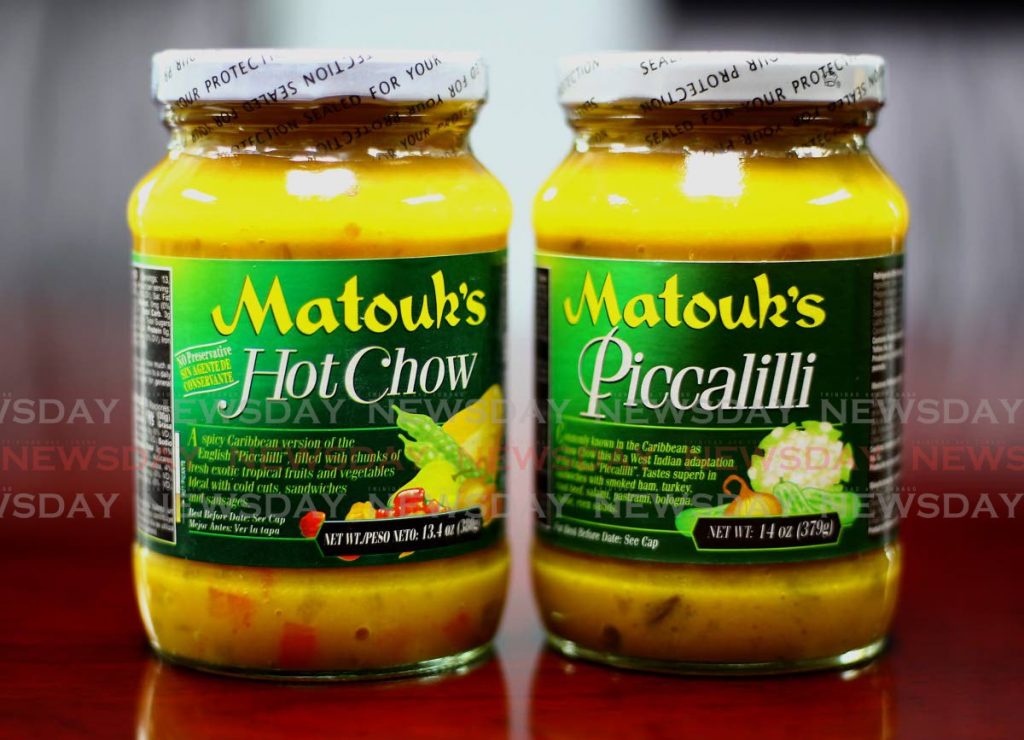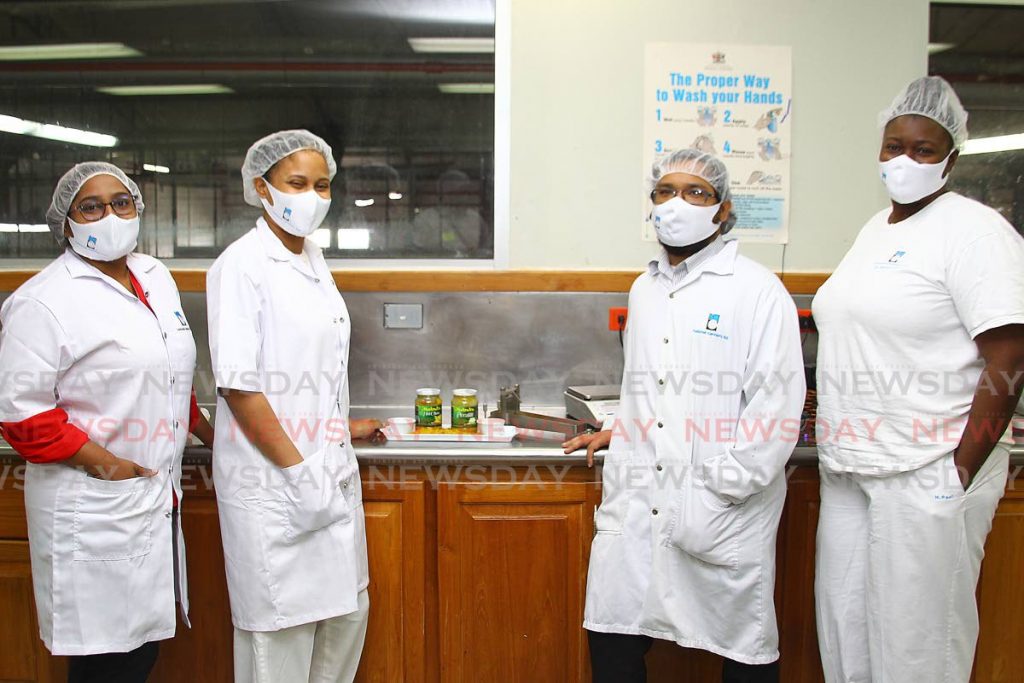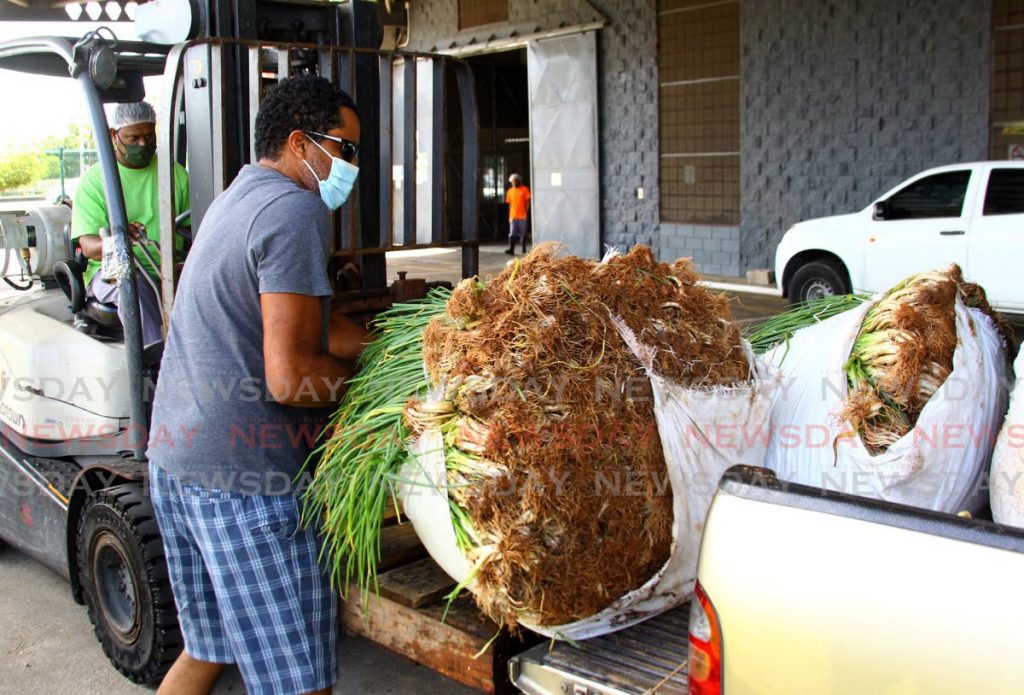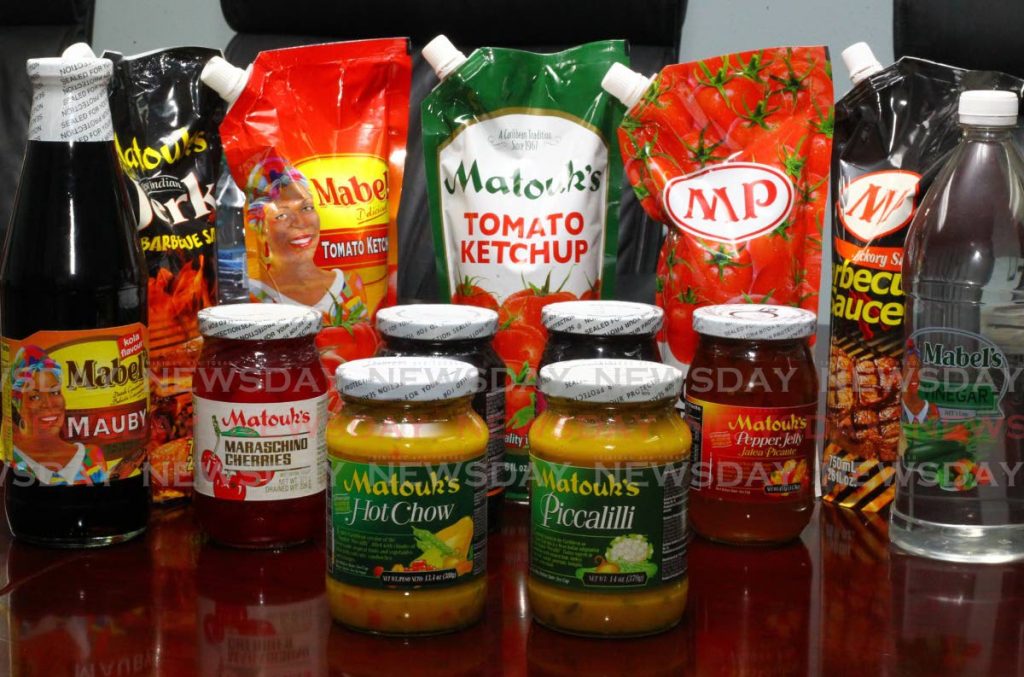Matouk's chow chows rival European sauces

IN TT, the best part of Christmas is lunch.
After a morning of gift-giving and an early breakfast, it's the moment when you finally sit in front a plate of delectable dishes with your family. Every year you marvel at the mountain of food that was prepared – the festive rice; pastelles: beef is a must, or pork, or chicken, or vegetables; the consortium of pies, whether macaroni, corn or shepherd’s; stuffed turkey, and of course juicy slices of ham, the size of your hand.
For many, the meal would be incomplete without chow chow, that golden, chunky and sometimes spicy sauce that compliments your meat dishes, especially the ham, so well. There are many variations of the sauce in the world as it originated as an European dish called piccalilli, but locally, when people think about chow chow, they think Matouk's.
Since 1987, the makers of the Matouk's brand – National Canners has delivered chow chow to Christmas plates, starting with 1,866 cases distributed nationwide. Today, National Canners distributes 20,000 cases each of the Matouk's Hot Chow and Piccalilli brands, dominating the local market. The Matouk's piccalilli, which is how the chow chow is now called, was designed to compete with European products and stands shoulder-to-shoulder with international brands.
Grandma Sabga’s special sauce
Retracing it's culinary history, piccalilli was first created in a kitchen in Britain the 1700s. Internationally, the sauce is used as a kind of relish (pickled vegetables and spices) which compliments sandwiches and cold-cuts well.
But, the story of TT’s premier chow chow began in 1986, in managing director Jeremy Matouk’s grandmother’s kitchen.

Research and development officer Satira Bajnath told Business Day that Matouk’s maternal grandmother, Linda Sabga, would frequently give him a bottle of her homemade chow chow to carry to work.
Not knowing what the sauce was, then managing director, George Matouk – Jeremy’s father – asked what was in the bottle that he loved so much.
“He tried it and he loved it and he brought a sample to the lab at National Canners,” Bajnath said. The food-processing company at that time was known for its range of ketchup and mustards (today it's products include pepper sauces, seasonings, jams, and beverages such as mauby).
George immediately took the homemade chow chow to the food scientists and asked them to reverse-engineer the sauce for mass production. Now, this task was more difficult than one would think, because the volume of ingredients which makes a homemade pot of chow chow delicious would not be the same for mass production.
“Let’s say I want to replicate ketchup. I would taste it, read the ingredients and so on, then I would try to find the quantitative amounts. So Sabga gave us the ingredients she used back then and the lab tried to quantify the results.”
The food scientists tried again and again to find the quantitative amount to develop a formula to make Grandma Sabga’s special sauce. Each time they took it to her, she would tell them whether something was missing or there was too much of something else. After a year of trial and error, she finally gave them the thumbs up.
A year later, the marketing team at National Canners recognised that there was an influx of European piccalilli, which was similar to the chow chow, on the market. They went again to the scientists at the research and development department and asked them to design a product that could knock the imported piccalilli off local shelves and be competitive in the TT market.
They started the process in 1987 and in 1989 they made their first production run of local chow chow 1,318 cases.
Locally made for local tastes
Today, Matouk’s Hot Chow and Piccalilli, as with all other brands distributed by National Canners, are 100 per cent local. Every ingredient – from cucumber, to pepper, to caraille, to cauliflower, fruits and other vegetables – is procured from local farmers, said Bajnath.
The company procures more than 20 tonnes of produce from farmers just for the Hot Chow and Piccalilli products.
In the beginning, National Canners made Hot Chow and Piccalilli according to demand, but technology and innovation in storage and food preservation has allowed the company to make the sauces in advance and store it for longer.
Bajnath assured the chow chows have no preservatives. The produce is procured, sorted and brined for storage.

“The brining is a preservation process that we use until we are ready to use it for the product. Once we are ready to produce we will put all the ingredients together. The type of jars also forms a vacuum and that also assists with the shelf life.”
National Canners now makes the chow chows, according to sale forecasts. They find out the average trending sales for the product and would get an idea of what the projected demand is.
“We would cater in production based on that forecast,” Bajnath said.

But the volume of produce that Matouk’s Hot Chow and Piccalilli procures is only a drop in the bucket compared to what the company takes in for their other products. As a matter of fact, the produce procured for Piccalilli and Hot Chow only accounts for a minor six per cent of the produce that the company actually gets from local farmers. National Canners, Business Day was told, buys a total of 400 tonnes of local produce for its products.
Bajnath said the reason is to enhance the local flavours.
“Quite a number of our products have been geared in terms of our quality and flavour, we pride ourselves on having a strong balanced flavour profile which caters to our local tastes,” Bajnath said. When you think about things like piccalilli, ketchup and jam you have flavour profiles and we cater to that.”
The taste of TT Christmas
For more than two decades, Matouk’s Hot Chow and Piccalilli has enhanced the taste of local Christmas meals. Bajnath said because of its traditional flavour she expects to see Hot Chow and Piccalilli on meals for many ears to come.
“Chow chow brings a sense of nostalgia,” Bajnath said. “It brings back memories.”
“That warm feeling where you have the ham and the chow chow on the side, and there is that feeling of happiness. You get memories of Christmas every time you taste chow chow, and if you have to visualise a bottle in your head the only bottle you will see is that yellow and green bottle whether it is Piccalilli or Hot Chow.”
Bajnath said many people have grown up with the Matouk's brands of chow chow on their plates, and others came of age when the first shipment came out.
“People in their 50s could remember when they started their families, the first Christmas they had, they had chow chow on their table. In TT, and the region by extension, in 2020 where you would lack that ability to connect with family, it is more important now to stay connected with that warm feeling now more than ever.”


Comments
"Matouk’s chow chows rival European sauces"